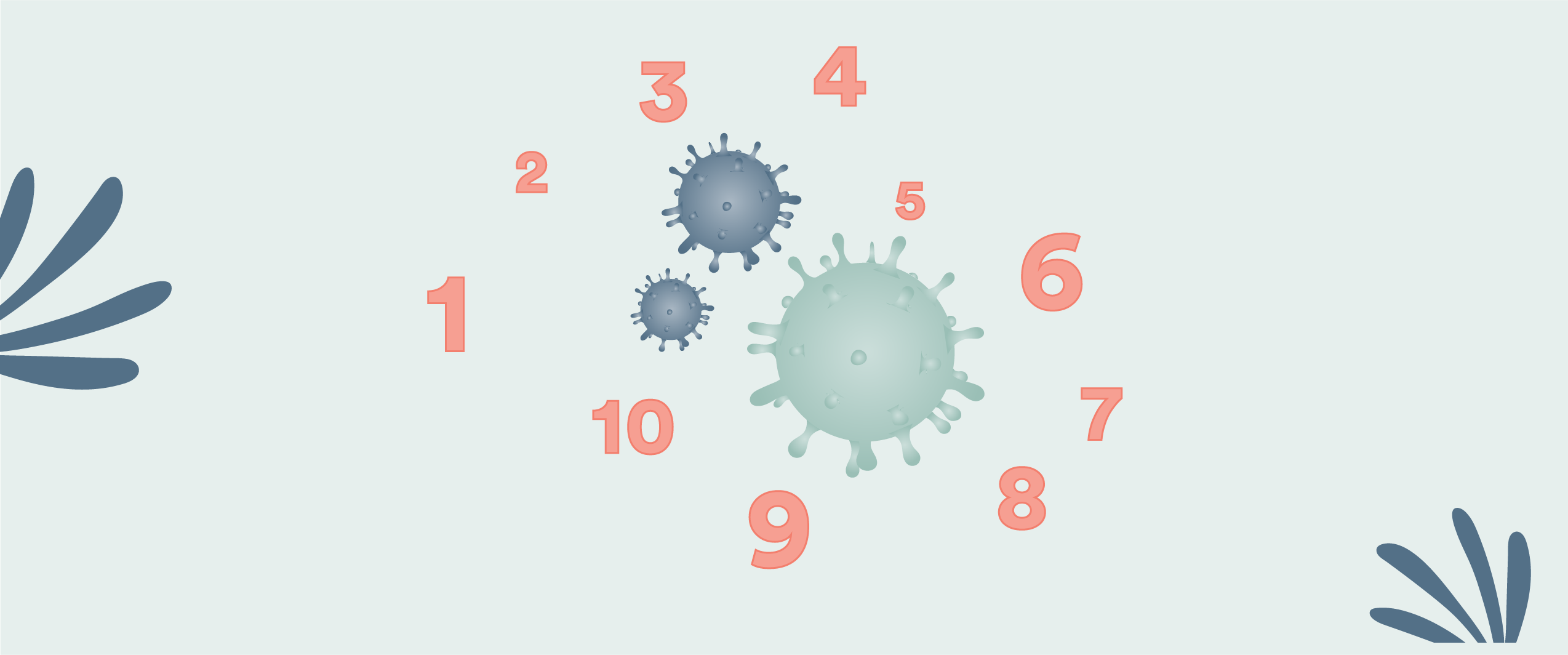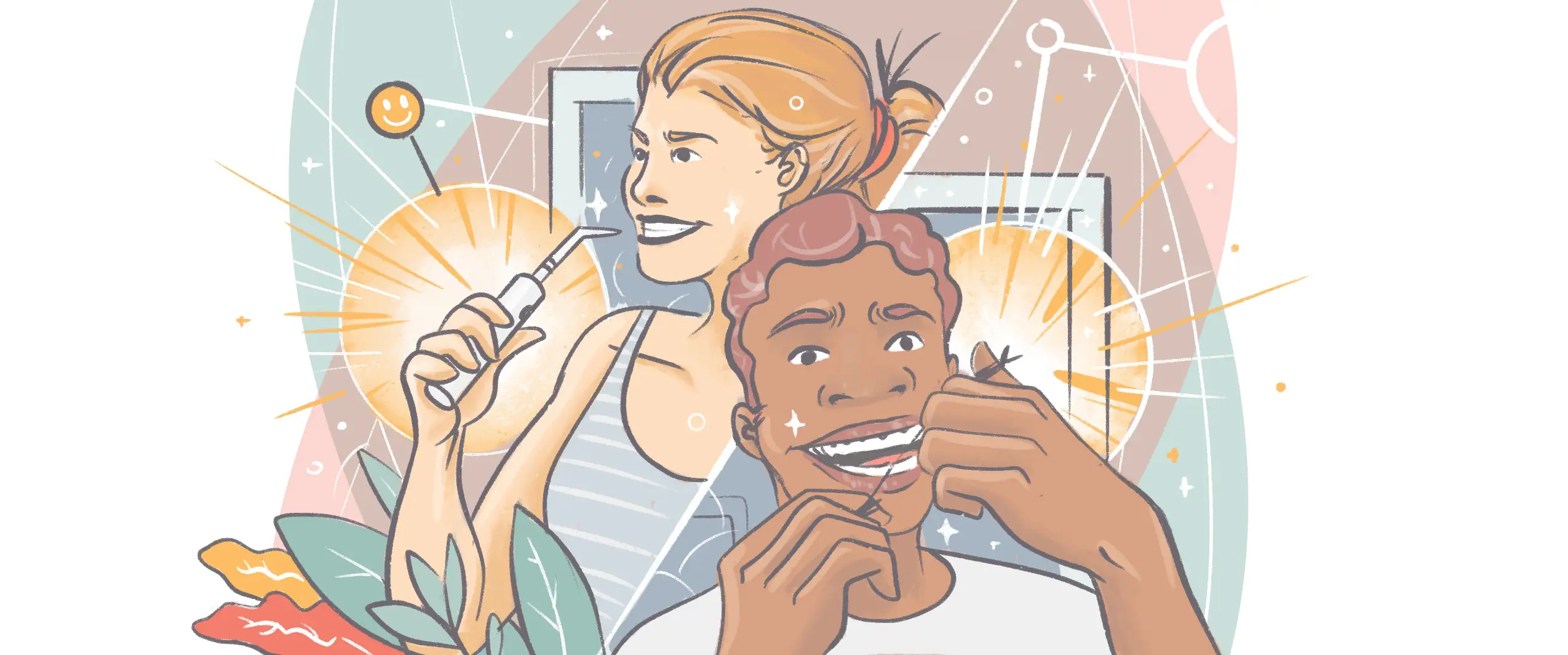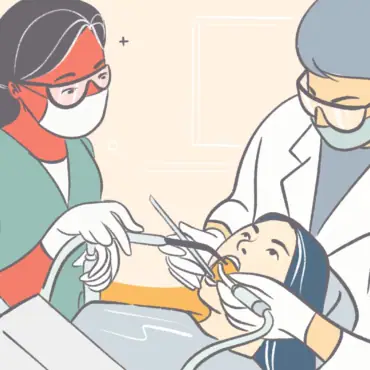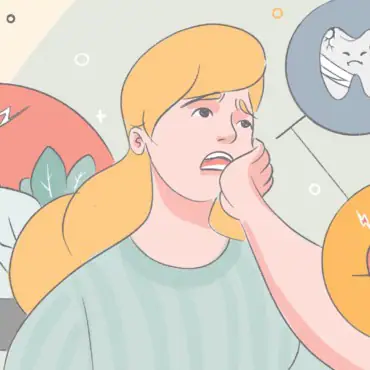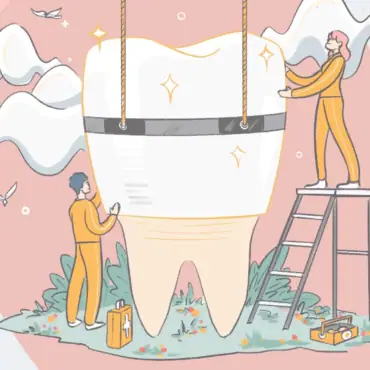How to maintain your oral wellness during the pandemic shelter-and-place.
Take care of your oral health with these simple tips. Preventative healthcare is now more important than ever, and oral wellness helps boost your overall immune response. Here are some ways to take care of your oral health during the coronavirus pandemic:
- Switch to electric toothbrush
Using an electric toothbrush allows for superior plaque removal. According to a 2005 independent study, “brushes that worked with a rotation oscillation action removed more plaque and reduced gingivitis more effectively than manual brushes” This is even more crucial when you are unable to visit your dentist at this time. When buying an electric toothbrush make sure it is comfortable to hold and easy to use. You can always get your dentist to recommend a model with a rotating-oscillating head to move the bristles. This option is also great for those who suffer from arthritis. - Brush twice/day for 2 minutes
Whether we are in a Global Pandemic or not, brushing your teeth is a must. Cleaning every tooth is vital as well as all surfaces of your teeth. Each tooth has 5 surfaces. 3 of them can be cleaned with your toothbrush. The last 2 should be done via flossing. You are removing 26% less plaque if teeth are brushed for less than 2 minutes. Bacteria coat your mouth’s interior including the inside of your cheeks, your gums and your tongue. To reduce the risk of cavities, bad breath you should brush these areas as well. - Floss like a boss as our Dr. Natalie Archer would say!
You have heard this one before! Flossing lifts and removes plaque that can be found in between your teeth. You can get rid of all the stubborn food particles that your toothbrush simply can’t get to. To be exact, it does about 40% of the work required to remove sticky bacteria from your teeth. Plaque produces acid, which can lead to cavities, irritated gums and gum disease. During the pandemic when you are unable to visit a dentist, it is crucial to be reducing the risk of any of the above by flossing. Here are several types of dental floss you can use:- Waxed Floss
- Unwaxed Floss
- Dental tape
- Dental Thread
- Power Flosses
Be mindful when buying dental products, everyone else also needs products. Don’t bulk buy and only get the amount you require.
- Keep your toothbrush clean
This means, changing your toothbrush every 3 months according to the ADA ( American Dental Association). If you don’t replace your toothbrush bristles in the given time you are increasing the risk of spreading infections and putting your dental hygiene at risk. As we are all social distancing from our friends, make sure your toothbrushes are also social distancing from each other to reduce the spread of germs. If you or your family members have been sick, it is a good idea to replace your toothbrush as your toothbrush is your first line of defence against the bacteria and infections. - Use Mouthwash
Mouthwash is also known as oral rinse and is a liquid product to rinse your teeth, gums and mouth. It typically contains antiseptic to kill harmful bacteria that can live on your tongue and in between your teeth. Mouthwash should not be used as a replacement for cleaning your teeth but when used correctly can be very effective in helping your oral hygiene. Some may also use mouthwash to fight against bad breath while others use it to prevent tooth decay. - Stay Hydrated
Drinking water in general impacts your everyday health. Sipping on water, especially if it is fluoridated, helps strengthen your teeth . It is one of the easiest ways to prevent cavities. Washing away food with water keeps your mouth clean from any left over sugars. Bacteria that have cavity affinity, leave behind acid on your teeth that strip away your enamel, which is your protective outer shell of your teeth. Sugary drinks contain other types of acids that also cause trouble by eroding enamel. Sip on water throughout your day to keep your smile fresh. - Reduce daily intake of sugar
Did you know according to the ADA, 96% of adults have cavities despite it being extremely preventable. No matter your age, tooth decay causes are he same.
Daily Sugar intake should be approximately 110grams in total according to The Canadian Sugar Institute. This includes sugars in fruits and other so called healthy snacks. When you eat sugars, a natural process called remineralisation takes place in order to protect your enamel. This however cannot keep up if your sugar intake is high, so it is essential that you are doing your part in reducing the intake in your diet to maintain healthy oral hygiene. - Eat Healthy to Stay healthy
Dr Jeanie Loung strongly advised us that a well balanced and nutritious diet is important for good oral and general health. The food we eat is what nourishes our body, teeth and gums need to renew tissue and aid in fighting infections and diseases. Some foods that are rich in calcium are known to strengthen your oral health by keeping your teeth strong. Stay away from junk food during the pandemic, if you are looking to support your local restaurants, opt for something healthier and keep your mouth clean! - Rinse mouth after every meal
You probably notice that you are eating more often now that you’re working from home, so it is crucial to be rinsing your mouth after every meal. When you are living in close quarters with your loved ones it is important and probably nice to keep your mouth fresh. The leftover food in your mouth can stay stuck on your tongue and in between your teeth and cause plaque build up. Make sure you swivel water or mouthwash after meals and not give bacteria the chance to leave that sticky residue on your teeth. - Leave the pack behind
This is a no brainer. Our health starts with the mouth. Our preventative professionals such as Dr. Natalie Archer are concerned about the effects of smoking on oral and overall health. It is one of the leading preventable health problems. Smokers can expect to develop a combination of these.- Bad breath
- Teeth discolouration
- Periodontal diseases
- Jaw bone loss
- Oral cancer
- Mouth sores and more.
Take care of your oral health by quitting your smoking habit. When you have decided to quit, you are likely to experience major and immediate health benefits that include reducing the risk of gum disease, bone and tooth loss, keeping teeth whiter and allowing wounds to heal faster.
If you are looking to quit here is some useful information that would help you:
The Canadian Cancer Society – Ontario Division: 416-488-5400 or 1 800 268-8874
The Lung Association – Ontario: 1-888-344-LUNG (5864)
Take care of your oral health to help boost your overall wellness during the coronavirus pandemic. It can be a confusing time with conflicting information, make sure to trust evidence-based sources.

